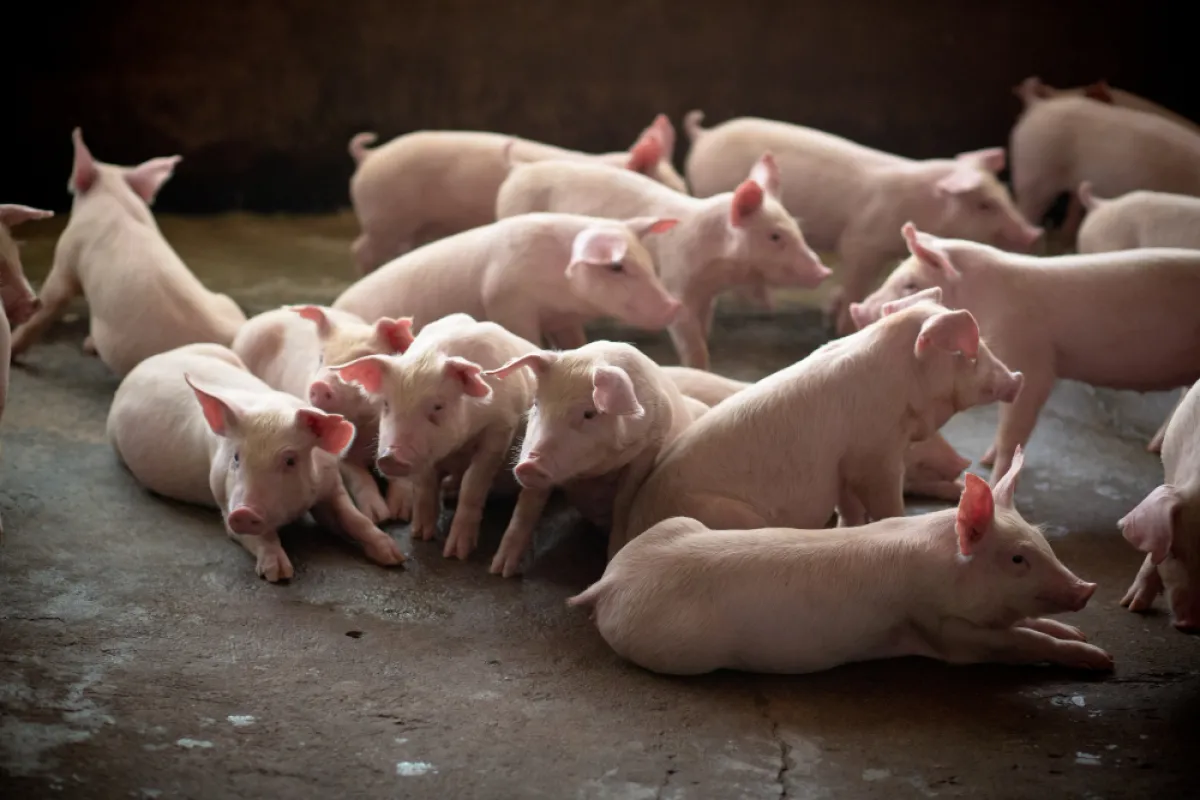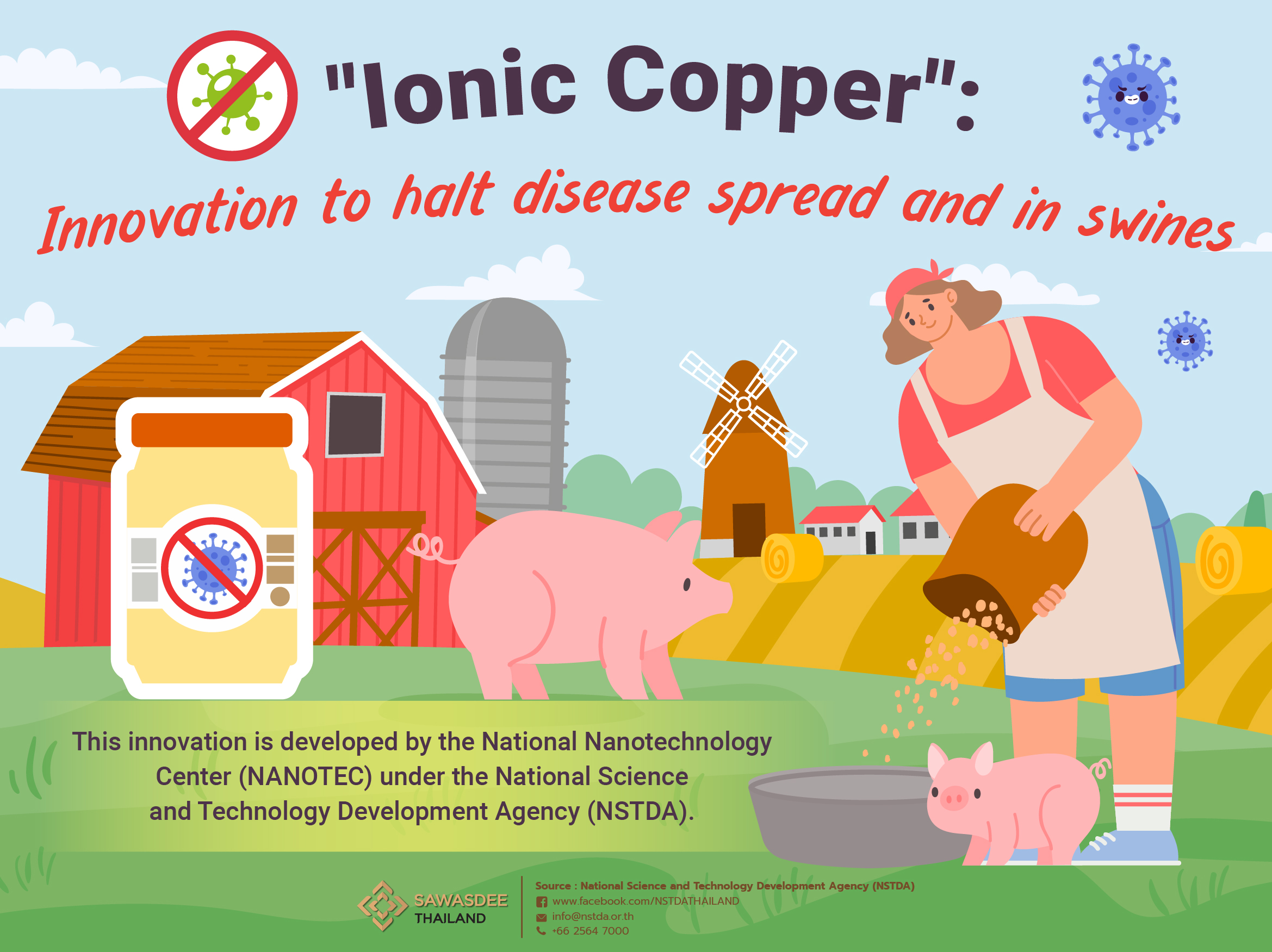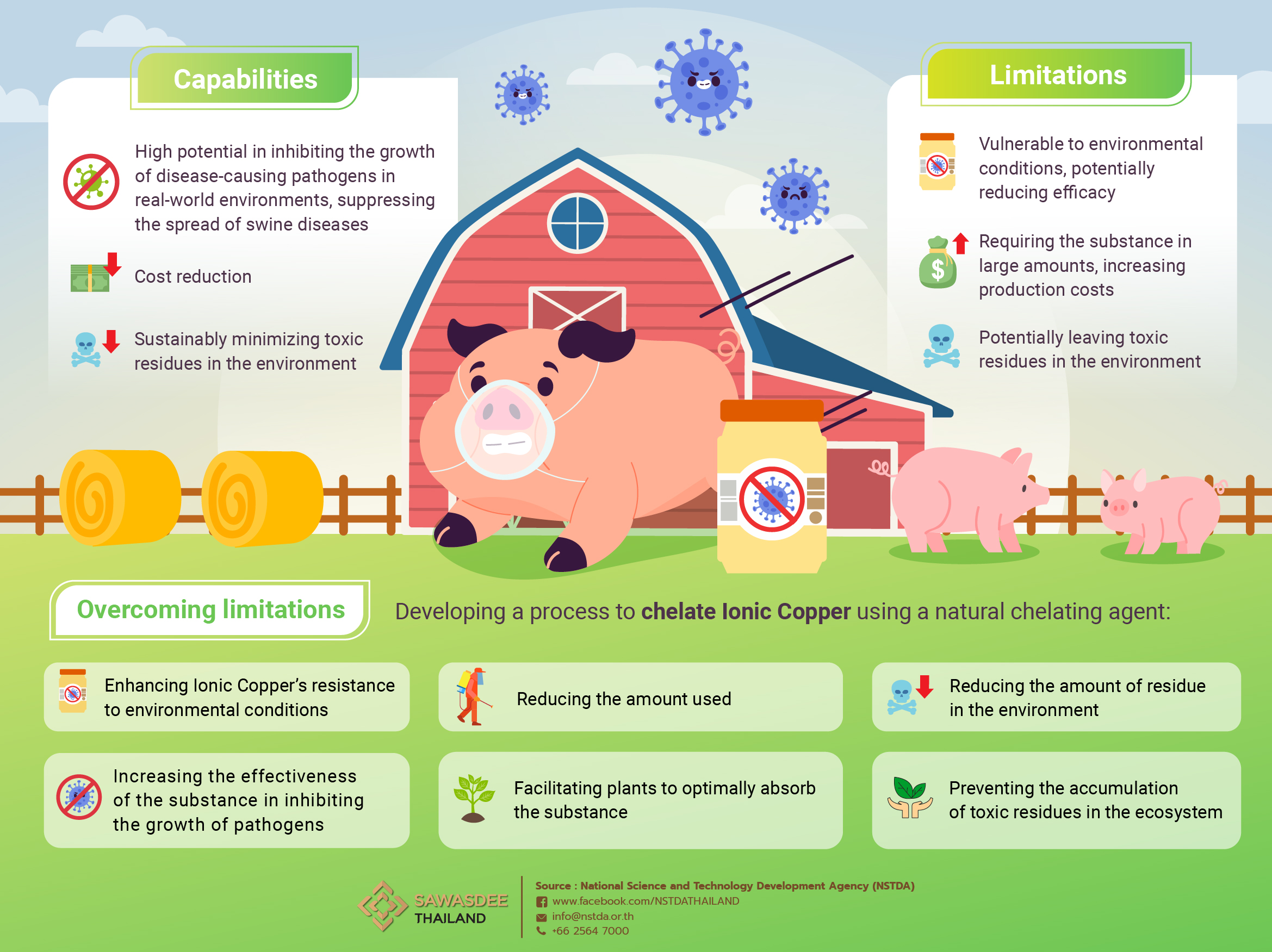
Thailand is recognized as one of the countries with high pork consumption, and also a significant producer and exporter of pork and processed pork products. However, the industry is being seriously affected by various epidemic diseases in pigs, such as African Swine Fever (ASF), Porcine Epidemic Diarrhea (PED), and Porcine Reproductive and Respiratory Syndrome (PRRS), which lead to a high mortality rate in pigs. This results in increased production costs for farmers and poses a risk of reduced output to the market.
The cost of combating these diseases is considerably high, prompting many farmers to temporarily or permanently shut down their farms, reducing domestic pork production. Since late 2021, Thailand has been facing escalating pork prices.
Controlling various factors to reduce the risk of pigs getting infected is critical. This includes adhering to measures set by the Department of Livestock Development and using antibacterial substances for cleaning.
The "Ionic Copper" innovation, developed by the National Nanotechnology Center (NANOTEC) under the National Science and Technology Development Agency (NSTDA), exhibits a high potential in inhibiting the growth of disease-causing pathogens in real-world environments. It aims to suppress the spread of swine diseases, reduce costs, and minimize toxic residues in the environment sustainably.
"Ionic Copper" or "Copper Salts" have the ability to inhibit the growth of both gram-positive and gram-negative bacteria, as well as viruses, covering major pig diseases. However, their use has limitations as they are not resistant to environmental conditions, potentially reducing their efficacy. This forces farmers to use the substance in large amounts, increasing production costs, and potentially leaving toxic residues in the environment.
To overcome these challenges, the research team has developed a process to chelate Ionic Copper using a natural chelating agent, enhancing its resistance to environmental conditions. This process increases the effectiveness of the substance in inhibiting the growth of pathogens, helping reduce the amount used.
Moreover, it facilitates plants to optimally absorb the substance (as copper is a plant nutrient), reducing the amount of residue in the environment and preventing the accumulation of toxic residues in the ecosystem.
The "Ionic Copper" innovation not only inhibits the growth of disease-causing pathogens effectively but also helps reduce the risk factors of epidemic diseases by controlling and preventing them. It assists farmers in reducing production costs without using "antibiotics" or hazardous chemicals, making it a suitable alternative for animal health care in appropriate quantities.
In addition, it could help eliminate trade restrictions, increasing opportunities for exporting pork and processed pork products in the future, which will benefit the Thai economy in the long run.
Source: National Science and Technology Development Agency (NSTDA)
Tel. +66 2564 7000
For more information

